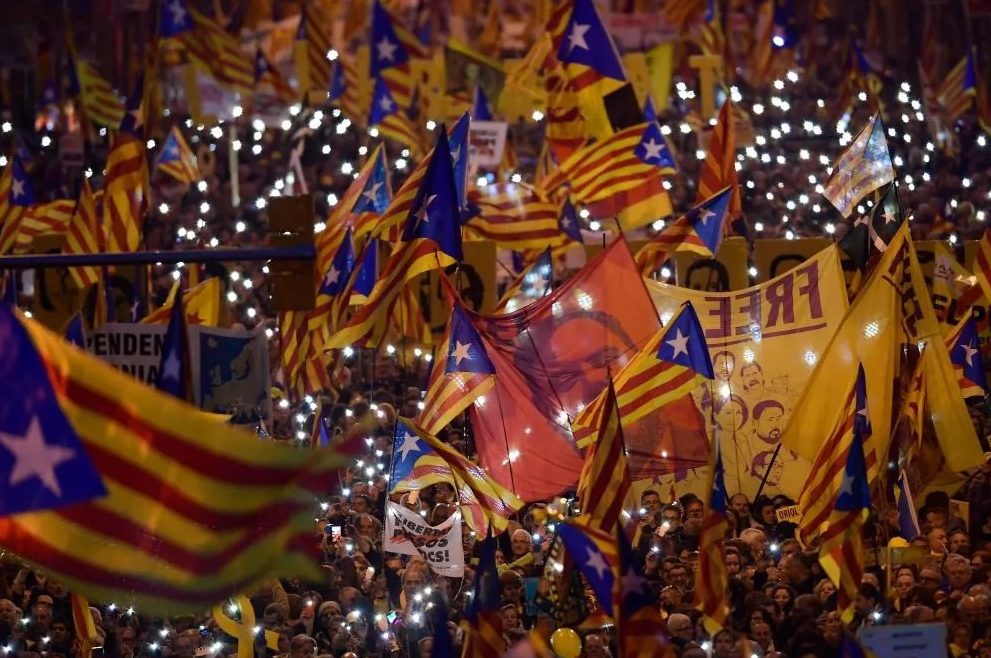When has a government ever offered an amnesty to fugitives from justice in order to stay in office? That’s what’s happening in Spain at the moment. Following July’s general election the only way in which the caretaker prime minister, the socialist Pedro Sánchez, can cling to power is by cutting a deal with a hodgepodge of small parties, including two Catalan separatist groups. Their price includes a general amnesty for those indicted for their involvement in the illegal referendum on independence for Catalonia in 2017 and the subsequent unilateral declaration of independence.
In July’s election Sánchez’s left-wing party, PSOE, won just 121 seats. The support of the radical left party Sumar (thirty-one seats) only takes that total to 152 — still well short of the 176 needed for a majority in the 350-seat parliament. To get over the line, Sánchez also needs the backing of five small regional parties, four of which want to secede from Spain. They include Bildu, heir to the political wing of ETA (the former Basque terrorist organization), as well as those two Catalan parties, ERC and Junts.
Junts is the party of Carles Puigdemont who was the Catalan premier in 2017 and so ultimately responsible for the referendum and Declaration of Independence. While other Catalan leaders went to prison for their part in that episode, Puigdemont escaped, hidden in the boot of a car and has spent most of the last six years living in some style in Belgium. Now it looks like there will be an amnesty for him and for hundreds of other politicians and activists facing prison or fines for enabling the unilateral push for independence or for their involvement in the violent street protests against the Spanish state.
Unsurprisingly polls show that most Spaniards are scandalized. They brush aside as self-serving Sánchez’s argument that the amnesty will promote concord and further reduce tensions in Catalonia — where support for independence is now only 33 percent. Instead, the facts that seem to stand out clearest to a majority of Spaniards in the whole affair are that Sánchez repeatedly swore that he would never under any circumstances grant any such amnesty and that he is now breaking that promise in order to cling to power.
Opposition to the amnesty throughout Spain — many Catalans are also opposed — is fierce and shows no sign of abating. Even senior figures in Sánchez’s own party are outraged; Felipe González, socialist prime minister of Spain (1982-1996), has pointed out that an amnesty — as opposed to a pardon — suggests that the “independentistas” were right all along and the Spanish state wrong. Meanwhile José María Aznar, the right-wing former prime minister (1996-2004) has described the proposed amnesty as “ a threat to democracy in Spain” and called for everyone everywhere to do whatever is in their power to stop it. There have already been numerous street protests and a nationwide demonstration against the amnesty will be held this Sunday at noon.
If Sánchez isn’t re-elected prime minister by November 27 then new elections will have to be held in January. So the lawyers are now working against the clock to draft the amnesty law, knowing that any loophole they leave will be seized on. Indeed, challenges in the courts seem assured: many judges and legal experts have suggested that a general amnesty will be unconstitutional, some describing it as the beginning of the end of democracy and the rule of law in Spain.
The stakes couldn’t be higher. Having so flagrantly broken his promise not to contemplate any amnesty for the “independentistas,” Sánchez’s chances of winning any repeat election seem slim. Instead, after a January election Spain would probably be governed by a coalition of the right-wing Partido Popular and the even more right-wing Vox.
Meanwhile, after joining a street protest against the amnesty, Esperanza Aguirre, a prominent figure in the Partido Popular, has been accused of blocking traffic. In her defense the mayor of Madrid, José Luis Martínez-Almeida, pointed out that at least she hadn’t burned trash containers or thrown stones at the police unlike the separatists. Asked if permission had been granted for her demonstration, he replied that apparently in Spain it no longer matters if you have permission or not.
This article was originally published on The Spectator’s UK website.


























Leave a Reply